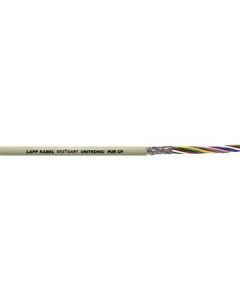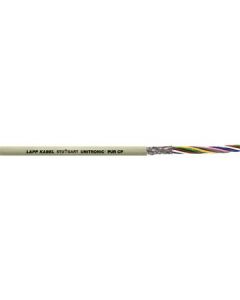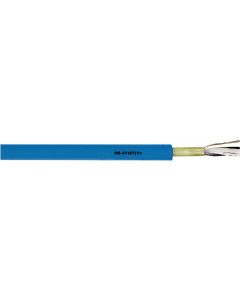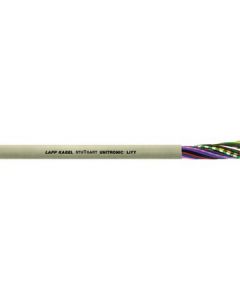
0037172
0037172
LAPP Cable
Halogen-free data transmission cable with colour code acc. to DIN 47100
UNITRONIC® LiHH: Low-frequency halogen-free data cable flexible, 0.34 mm² multi-wired Maxi TERMI-POINT®, DIN 47100, low capacitance, low smoke density LS0H/LSZH
Contact us for Lead Time
Click below to request a quote for this item. Or for product advice, stock and lead time enquiries call our team on 0330 313 3220.
0037172 Specifications
- Flame-retardant according IEC 60332-1-2
- Low smoke zero halogen (LSZH)
- Halogen-free as per IEC 60754-1, Low corrosivity/ acidity of combustion gases per IEC 60754-2, Low toxicity of comb. gases per EN 50305
- Low smoke density according to IEC 61034-2
| Attribute | Value |
|---|---|
| Product Brand Name | UNITRONIC® LiHH |
| Approvals | Based on VDE 0812 |
| Approvals |
|
| Extended Description |
Benefits
|
| Benefits | Halogen-free: to protect human life and valuable assets in the event of a fire, through low smoke density and low amount of corrosive gases | Low capacitance due to polyolefin-based insulation | Small outer diameters despite a high number of cores |
| Halogen free | Yes |
| Number of conductors | 4 |
| mm2 per conductor | 1 |
| Outer Diameter (mm) | 6.6 |
| Copper index kg per km | 38.4 |
| Core Identification Code | DIN 47100 without colour repetition |
| Test Voltage |
|
| Benefits |
|
| Product Make Up |
|
| Product Make Up | Fine-wire/multi-wire (0.34 mm²) strand made of bare copper wires | Core insulation made of special halogen-free compound | Outer sheath made of special halogen-free compound | Outer sheath colour: pebble grey (RAL 7032) |
| Test Voltage | 1200 V |
| Inductivity | approx. 0.65 mH/km |
| Core Identification Code HTML |
|
| Conductor Stranding | Stranded, fine-wire 0.34 mm²: 7-wire |
| Conductor Stranding HTML |
|
| Minimum Bending Radius | Occasional flexing: 10 x outer diameter | Fixed installation: 6 x outer diameter |
| Minimum Bending Radius |
|
| Temperature Range |
|
| Technical Data |
Core identification code
|
| Applications |
|
| Weight kg per km | 67 |
| Temperature Range | Occasional flexing: -5°C to +70°C | Fixed installation: -30°C to +80°C |
| Applications | Suitable for areas with a high density of people as well as high-value property that must be protected in the event of a fire | For use within public buildings, transport systems and industrial plants | For data processing, measurement and control engineering, safety related systems and as electronics cable | Dry or damp rooms |
| Features | Flame-retardant according IEC 60332-1-2 | Low smoke zero halogen (LSZH) | Halogen-free as per IEC 60754-1, Low corrosivity/ acidity of combustion gases per IEC 60754-2, Low toxicity of comb. gases per EN 50305 | Low smoke density according to IEC 61034-2 |
| Attribute | Value |
|---|---|
| Data Sheet | Click here to view |






